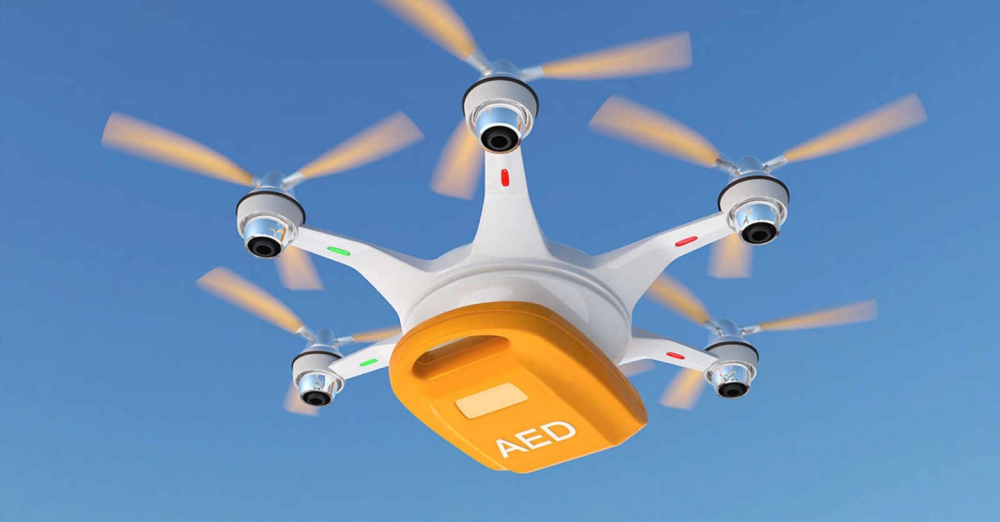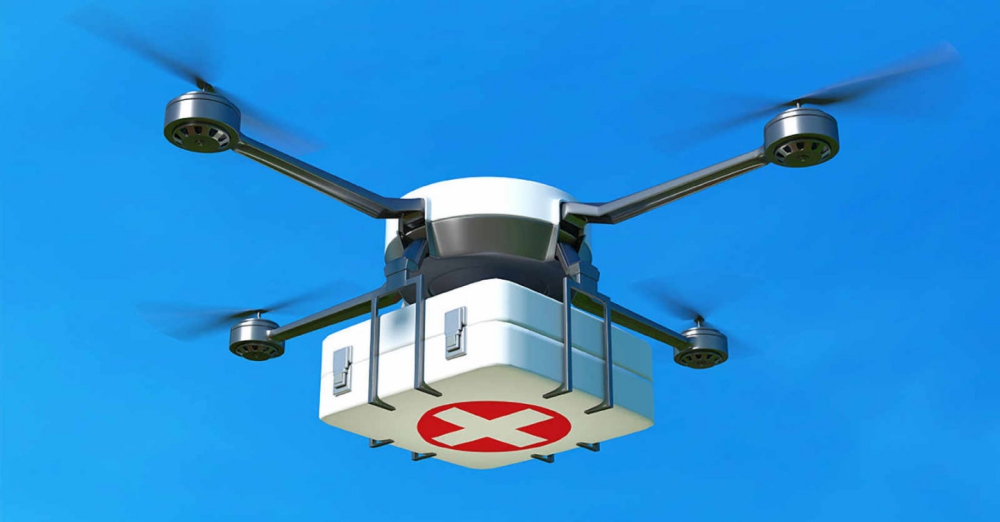Connecticut based drone manufacturer Aquiline Drones (AD) is partnering with logistics firm VyrtX to create an innovative and life-saving medical delivery service for human organs and tissues using unmanned aerial vehicles (UAVs).
“Currently, there is a 25% discard rate for unused human organs because they cannot physically get into the hands of the transplant surgeons in time before the window of opportunity expires,” said Dalton Pont, CEO of VyrtX. “When every second counts, UAVs propose an ideal solution to move an organ quickly, to where it needs to be safely, securely, and medically-sound. As a pioneer in optimizing organ transplant services, our goal at VyrtX is a near-zero discard rate, and we are confident that Aquiline Drones can help us achieve this objective.”
Details of the new alliance include:
- AD to prototype highly specialized vertical takeoff and landing (VTOL) drones with superior range and payload capabilities;
- AD to provide blockchain logistics for transparency, real time tracking and monitoring of the transportation lifecycle;
- Building of ground support infrastructure (mobile command and edge datacenters) for drone support, persistent communication, mission tracking and handoff;
- Enterprise Asset Management solution for scalability – provided by Aquiline Drones Cloud (ADC);
- Using the VyrtX technology platform, AD is custom creating an integrated virtual storage solution that offers real-time connectivity, big data storage, analytics and modeling through Aquiline’s cloud. ADC, which is purpose-designed for drone operations, will exceed the stringent audits and compliance processes required by VyrtX and by U.S. law, as well as maintaining the highest level of privacy and security required for VyrtX’s project data.
- VyrtX using its cutting-edge technology to attract healthcare clients, such as hospitals and medical centers, which could benefit from UAV transportation logistics.
“To our knowledge, no other symbiotic relationship exists in the current marketplace between a proprietary organ transport technology platform and a progressive UAV enterprise,” said Barry Alexander, Founder & CEO of Aquiline Drones. “We believe that this strategic partnership is a significant step in setting the gold standard in organ delivery services globally. This partnership also underscores AD’s promise to safely integrate drones into society and help realize true benefits to humanity. In this case, saving countless lives!” Alexander added.
Developing an Air Corridor
Pont notes that the state of Ohio is a natural starting point to pilot the new union since VyrtX is already working with Dayton’s Air Force Research Laboratory, Ohio’s UAS Center and the Springfield Unmanned Aircraft Systems Center, as well as all four of Ohio’s Organ Procurement Organizations. Together, they aim to develop an air corridor across the state that would facilitate the country’s quickest transportation of organs.
“We want to develop a highway system in the sky because that’s how people drive and how things move,” says Pont. “Ohio will be the first state in America to do this, and with Aquiline Drones, we hope to make it happen very soon!”
As one of only four drone companies in the United States to own and operate under an FAA 135 Air Carrier Certificate, AD will offer future operational flexibility to facilitate approvals and exemptions on non-traditional, augmented and unique UAV operations such as the VyrtX collaboration. In addition, as a pilot-owned, operated and supported entity, AD works closely with the FAA for both Flight Operations and Maintenance on regulation compliance, safety and risk mitigation.
“A key thing to remember is that drones are not gadgetry, but aircraft, and if we want to gain the public’s trust, we must ensure safety first,” said Alexander. “With safety at the core of Aquiline Drones’ framework, and speed being the mission of VyrtX, together we are poised to usher in the ultimate and world-class UAV solution that will help save lives around the world through our safe and timely drone-delivery organ transportation system.”
According to the American Transplant Foundation, there are 114,000 people in need of organ transplants in the US; and only 30% will receive their life-saving surgery this year. Unfortunately, 20 people will die each day as their time passes by, making the number of annual deaths greater than 40,000. This is not from a lack of available donated organs, but mainly from cumbersome and complex transportation systems. Supporting research has been building from the transplant world itself.
“There are plenty of donors to meet the need, but the system is so inefficient that available organs often don’t reach desperate patients,” says Dr. David Weill, former Director of the Center for Advanced Lung diseases and the Heart-Lung Transplant program at Stanford University Medical Center in a recent interview.
Dr. Robert Fisher, former Director of Transplant from Harvard Medical School and Beth Israel Deaconess Medical Center adds, “We have developed the premise that the lack of an organ donor logistical time critical transport system accounts for more than half of the deaths from organs and recipients missing one another. A logistics transport system for organs, recipients, and transplant teams, 365 days of the year, 24 hours a day, with viable response times on an hours’ notice, when minutes matter, simply does not exist.”
Source: Press Release


